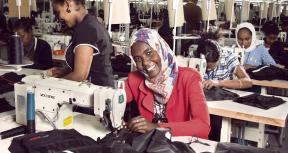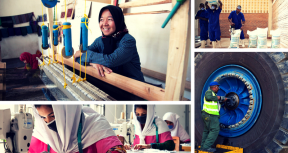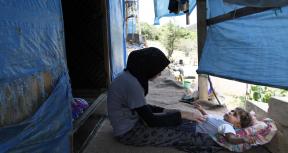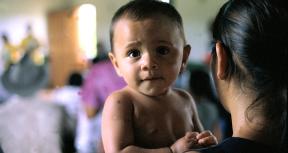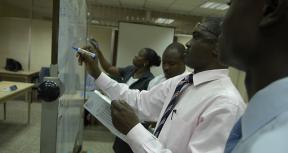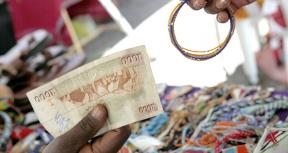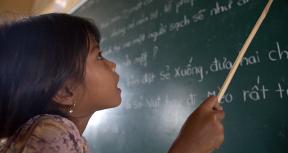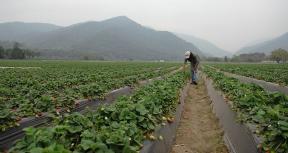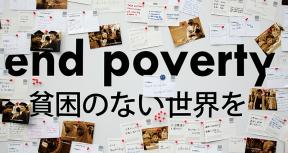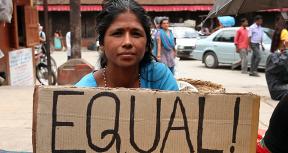Background: the link between the rural non-farm economy & poverty
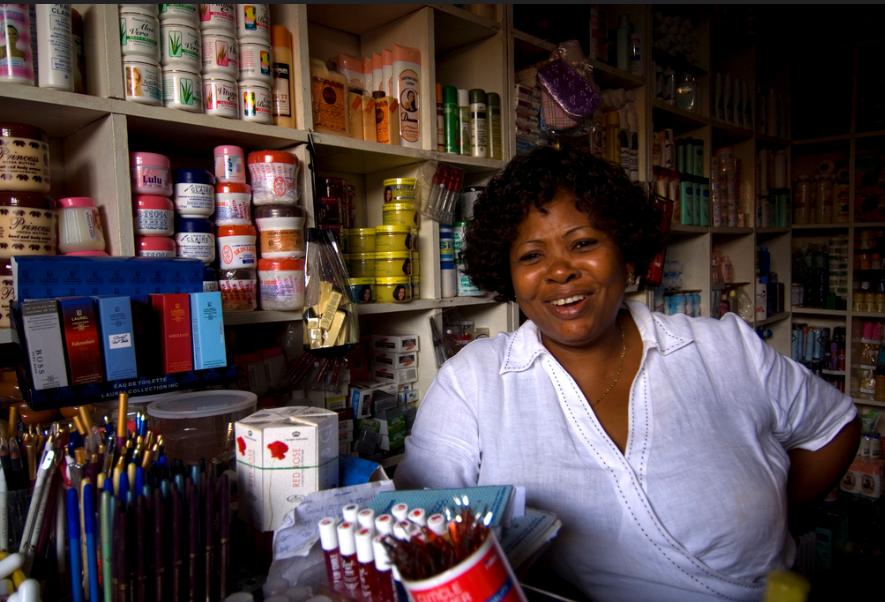
Rural non-farm activities account for 35 to 50 percent of rural income in developing countries, and for the landless and the very poor, sustainable income gains at the household level are associated with additional wages earned from non-farm activities. Households relying only on farming tend to be among the poorest. The rural non-farm sector can, and often does, contribute to economic growth, rural employment, poverty reduction, and a more spatially balanced population distribution (Lanjouw 2001). The distributional impacts of rural non-farm opportunities can be significantly pro-poor, extending through linkages between the non-farm and the farm sector. However, for the poor to benefit from opportunities in the rural non-farm economy—including those presented by mobility—they must overcome many policy and resource constraints. These include limited access to connectivity, education and relevant skills training, finance, and legal rights to land. Other constraints are associated with exclusion based on gender, age, or identity.
World Bank Group support to the rural non-farm economy
Strategy: World Bank Group strategies have acknowledged the importance of the rural non-farm economy, including as a pillar of its the Agricultural Action Plans. However, such plans did not identify pathways to achieving rural non-farm gains outside of the agricultural sector, nor did they create a roadmap for external partners. Country programs have delivered rural services as part of sector programs, but not as part of an integrated spacial approach to developing the rural non-farm economy to reduce rural poverty.
Analysis: Critical to guiding coherent country approaches to the rural non-farm economy is the application of consistent diagnostics. The Bank has been a leader in researching the rural non-farm economy, including its link to poverty. Addressing binding constraints is key to linking the rural poor to productive activities in the rural non-farm economy. Yet in the World Bank there is a gap on the diagnostic and analytics side that has not been systematically addressed. The Bank has yet to apply any of its pioneering related diagnostics broadly or systematically.
Targeting and Monitoring Benefits to the Rural Poor: Very few projects tracked welfare or employment effects for the poor. In the absence of better metrics, the World Bank Group has difficulty determining which approaches work best to reduce rural poverty in different contexts. Projects with a poverty focus are not tracking the feasibility of their underlying productive investments. Value chain projects are recording revenues but not distributional benefits. There is little capture of impacts on labor markets, and no accounting of the effects of migration and remittances.
Knowledge Generation and Sharing: The growth of the rural non-farm economy to reduce poverty requires sectoral collaboration. IEG found that there are many interventions in this space but these tend be operating in parallel. There have enhanced efforts to collaborate through key global solution groups, including on rural livelihoods and agricultural employment. There continues to be an opportunity to test new hybrid approaches derived from inter-sectoral learning to support the rural non-farm economy.
Gender: Sex disaggregated data increasingly records women’s participation. However, few projects record women’s access to economic opportunities, and none record distributional benefits by sex.
See Chapter 2: Poverty-Targeted Approaches to Generating Income and Employment, Chapter 3: Growth-Oriented Approaches in the Rural Non-Farm Economy, and Chapter 4: Country Strategy, Analytics, and Enablers
Recommendations
Recommendation 1: At the corporate level, the World Bank and IFC should clarify its approach to the rural non-farm economy, and as part of it, how the Bank Group engages across its institutions, GPs, and partnerships to promote non-farm economic development to reduce poverty in the rural space. As part of this approach, options should be differentiated by the level of structural transformation and guided by portfolio lessons.
Recommendation 2: In order to bridge the identified gap, the World Bank and IFC should more flexibly and relevantly select and design projects in a manner tailored to the specific stage and nature of a country or area’s structural transformation and adapted to the needs and dynamics of the target rural population. To encourage this, the World Bank Group should increase the pooling of knowledge and cross-fertilization across GPs, regions, and units to build on and adapt ongoing approaches and to develop new ones.
Recommendation 3: The World Bank Group should work to close knowledge gaps about what works to reduce rural poverty within the rural non-farm economy. The World Bank should conduct evaluations (either systematically, through a representative sample, or through clusters) of poverty and growth oriented projects to learn more about mechanisms by which they influence the development of the RNFE and its impact on poverty
Recommendation 4: IFC should include in its value chain analysis and M&E a consideration of poverty and gender impacts, including income and employment for the rural poor; either systematically, or on a sample or cluster basis including through a strategic use of its external evaluations. In its value chain projects, IFC should more explicitly articulate the risks of market power and their mitigants in its project documentation.
Recommendation 5: In countries where the rural economy is a key part of the solution to ending poverty, the World Bank Group should (in partnership with donors and client countries) collect information on both formal and informal rural enterprises and their constraints and performance to help better inform the Systematic Country Diagnostic. RNFE diagnostics should include information for household-based enterprises as well as micro, small, and medium enterprises. Local capacity building and ownership is a critical part of this. This could be achieved by extending existing enterprise surveys to strengthen coverage of secondary cities and to include smaller enterprises in countries where existing surveys are limited in their coverage. This could be complemented by household surveys building on the experience of the LSMS-ISA on Agriculture to document entrepreneurial and work experience in rural enterprises.
Recommendation 6: The World Bank Group should strengthen and deepen gender analysis during project preparation of rural non-farm projects and more consistently use the results of this analysis to address gender-related binding constraints to female labor force participation in the RNFE. Project design should incorporate measures to address these constraints, and select indicators to track progress made toward gender related economic outcomes.




